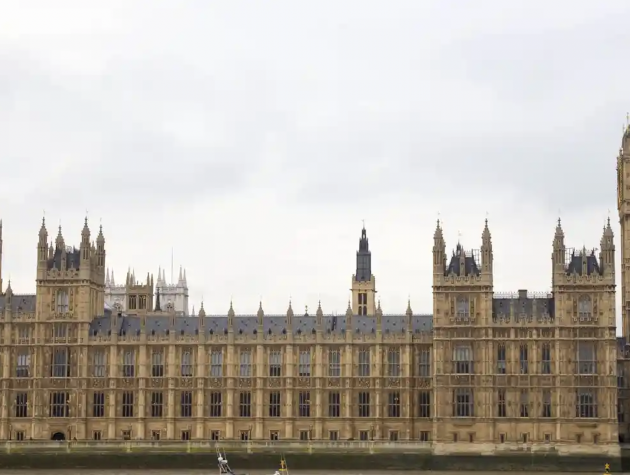Research Workshop: Regulating the Global Digital Economy
On 13th September 2021, Emily Jones (Global Economic Governance Programme) and Liz Stuart (Digital Pathways at Oxford) convened a multi-disciplinary workshop of scholars, and select practitioners, researching different domains of digital economy regulation. Our aims were to deepen our collective understanding of the dynamics of cross-border regulation in the global digital economy, identify common threads, and pinpoint areas for future research. This report summarises the mains themes discussed on the workshop, which was held by invitation-only and under Chatham House Rules.
Introductory Panel
The discussion started with an acknowledgement that – when it comes to regulating the global digital economy - governments do not seem to agree on much, beyond the notion that Big Tech is too powerful and therefore poses significant challenges to regulation. Digital technologies are impacting many sectors of the economy – from taxation to labour markets and competition – and are a central concern for national security, so there is the need for coordination across sectors. In deciding how to regulate the digital economy there are tensions and trade-offs. Fundamental decisions need to be made about what the overall objective is, and which societal values should be prioritized. As countries and governments differ, it is hard to reach agreement on international regulation. The singular focus on Big Tech was questioned as there are divergent interests among the major players in the tech sector, and, as the Pegasus incident has revealed, the products of small companies may cause great political and economic harm. The need for a better understanding of the political economy of the digital economy was highlighted, including dynamics within states and the impact of new oligarchies created through the generation of wealth in the technology sector, and the global political economy dynamics of the digital economy.
Digital Taxation
The proliferation and globalisation of digital platforms and digitally-driven business models presents new challenges to the questions of tax liability, tax incidence and optimal taxation. In order for countries to enact tax reforms that are both in the public interest and supportive of innovation, there is a need for international coordination and consensus on approaches. Some governments resorted to unilateral actions (e.g. digital services taxes) and this helped propel agreement at the OECD on an international framework for tax reform. While it is a significant development, the new agreement represents a compromise and incremental reform instead of a fundamental change in approach. The negotiations revealed new alliances forming on digital taxation, with tensions between the US and EU, as well as common positions adopted by the US and China in some areas. Although participation in the negotiations has widened considerably, developing countries, particularly from Africa, are underrepresented, and countries that were party to the negotiations opted out in order to maintain unilateral digital services taxes. The digitalization of the economy provides tax authorities with more data and enables them to widen the tax net, although there is the risk that this will increase the tax burden on micro and small businesses that are least able to afford it. Areas for future research include analysis of the differential impacts of international tax reform proposals across countries, including low- income countries, and on actors within economies, including platform companies and workers in the gig economy, and to forecast how these might shift in the future. Greater analysis of the political economy dynamics of global taxation, identifying and accounting for key cleavages, and the tax policy choices of different governments and factors influencing these choices.
Cross-border Data Flows
Early rhetoric on the internet and on the digital space emphasised the importance for openness and free data flows but this is increasingly challenged by many consumers and users who are concerned about potential violations of privacy and mis-use of their personal data, as well as governments concerned about the implications for national security and economic sovereignty. The challenge for individuals is that few understand the implications of how their data is used, and international data markets are opaque, so regulators need to set and enforce the rules to protect individuals and the wider public interest. Current approaches to regulating cross border data flows range from libertarian models of the US, which prioritizes free flow of data, to the approach of the EU, which places greater emphasis on privacy. Many emerging economies – including BRICS countries – look to data and other digital economy regulations as means of curbing the power of foreign technology companies and asserting their sovereignty. Trade agreements increasingly contain provisions on the free flow of data across borders, but few provide any provisions or regulations to ensure cross border data flows that respect privacy and human rights. There are also major tensions between high income countries and developing countries in digital trade negotiations as many developing countries are opposed to binding rules, a reflection of deep-seated concerns that the trading system constrains their ability to develop. While governments may seek to regulate specific types of cross-border data flows, in practice this can be hard to do, as cross-border data flows are fundamental to the functioning of so many aspects of the digital economy. As the internet is by definition (and by design) international and underpinned by data flows, so trying to limit flow of all data (rather than specific types of data) across borders would “break” the technology.
Cybersecurity
There are strong grounds for thinking of cybersecurity as an economic policy issue, as digital technologies are ubiquitous throughout the economy. The actions of malicious cyber actors, states or criminal gangs, lack of security in the digital technologies that underpin our economies, and concentration of economic activity in specific nodes (e.g. major cloud servers), creates systemic vulnerabilities. In the current state of cybersecurity, all incentives favour bad actors who exploit the ambiguities in applying international law to cybersecurity and the absence of an international system that could bring criminals to justice. In addition to international cybercrimes, supply chain security, IoT security, as well as developing acceptable norms for state behaviour in cyberspace (such as an agreement not to target critical infrastructure) are significant challenges that need to be addressed. In doing so, we should be thinking about the right to safer technology and ways to incentivize its production, including through robust international minimum standards. While global agreement is hard to reach, new pockets of coordination are emerging including between the US and EU, and among the BRICS countries. Industrial policies and investments in cybersecurity are an important angle in thinking about the intersection between cybersecurity and the economy, and this is of particular concern in many emerging economies. Another area that needs to be investigated is the link between cybersecurity governance and the trade agenda. While trade agreements have become a major focal point for international coordination, it is not clear that trade institutions are the appropriate forum for regulating the digital economy, including in areas such as cybersecurity.
Regulation of new technologies and international standards
International standards can help ensure inter-operability between new digital technologies – vital to a hyperconnected global digital economy - and can also be used to ensure that these technologies meet minimum levels of cybersecurity. As emerging technologies have societal impact (e.g. AI) it is really important that standards that are developed to regulate such technologies reflect societal values such as democratic values and protection of human rights. At present international standard setting is fragmented and often takes place in bodies that are dominated by industry, as individual firms reap significant economic rewards from having their intellectual property embedded in international standards, and there is often little oversight from governments or input from consumer and civil society groups. This said, the call for more state oversight in standard setting should be approached with caution as many issues are very technical and require industry expertise. In a bid to address the potential problems associated with new technologies, care needs to be taken not to over-regulate and dampen innovation. Geopolitical tensions play into policy decisions over which technologies to adopt and how to regulate them (e.g. African countries need to navigate complex geopolitics between China and the US – opting for Chinese technology may deter US investment, and vice versa). While some governments, notably China, have a sophisticated multi-pronged strategy for influencing international technology standards, many others don’t. Standards setting is dominated by a few industry and government actors.
Labour in a Digital Age
At the inception of the International Labour Organisation, governments agreed that labour was not a commodity and should not be treated as such. The emergence of online labour markets are upending this basic tenet as humans are treated as a service. Platform companies have manouvered to circumvent the application of traditional labour laws by defining themselves as matchmakers and workers as independent entrepreneurs, and they are deliberately creating ambiguities, which makes regulation appear harder than it is. This enables platform companies to shift risk and liability to others, while digital technologies are used to ensure close control over the workforce. These issues have international dimensions as labour relations in the online economy are often cross-border (i.e. workers are in a relationship with a company based in another jurisdiction) and it is unclear which employment laws apply. In the online labour market, global competition for the same work drives not only a cross- border race to the bottom in terms of wage and labour standards (crowdwork), but can also have adverse consequences for consumers and citizens. While governments have sought to develop new regulations for digital economy work, industry penetration of regulatory bodies has undermined labour regulation. When technology companies are successful in the regulatory space (e.g. Proposition 22 in California) they seek to use this as a precedent for advocacy in other jurisdictions. As regulation has failed to secure labour protections most digital labour protection to date has occurred through courts. Illustrating the interlinkages between issue areas, one challenge for labour rights in the digital economy is that while competition law had traditionally provided ‘labour immunity’ (allowing workers to unionise and act collectively without falling foul of competition rules) this does not apply to self-employed contractors, which are ubiquitous in the gig economy. Robust data protection and oversight of new technologies could be used to help uphold labour rights, including in instances of algorithmic termination. Questions are increasingly being raised as to how the interests of workers should be reflected in digital trade agreements (e.g., in the US with the new administration’s worker-first approach to trade). Yet there is both an absence of a concrete proposals on how this should be done.
Digital Market Competition
Big tech is the quintessential cross-border sector of the economy and yet competition laws are national. It was broadly agreed that competition law has been ineffective in dealing with big tech, creating more equal societies, and reducing market concentration – even in jurisdictions where competition authorities have been largely successful. Big tech has been able to capture competition law in such a way that renders it virtually useless in certain circumstances. For this reason, new ex ante regulation is needed and this is the direction in which major jurisdictions should be or are already heading (including the EU, China, and, to a lesser extent, the US). Regulations are being determined unilaterally and although there is quite a high level of substantive alignment (e.g. between the EU and US) there are also inconsistencies. This is problematic as regulations have extra-territorial effects, and tech firms are politically powerful and have deep pockets with which to engage in litigation. Three main barriers to coming to a global common position on competition policy and big tech are the recent trend of deep nationalism as opposed to cosmopolitanism; differing political philosophies between EU and US in their approach to competition; and the fact that tech companies are ahead of the game and have power over policy, so they are shaping emerging regulations. It was flagged that waiting for the perfect system is exactly what big tech wants, and (albeit imperfect) unilateral action is better than no action. Where markets are governed by private entities – there was a suggestion that they should be governed by private entities that at least take the public interest into consideration. One silver-lining is that the digitalization of the economy does make it easier for governments to conduct market surveillance and identify instances of market concentration.
Concluding Panel
In the final panel, speakers cautioned against focusing too much on the mechanics or on how to regulate the latest technology, rather than on the end goal of digital regulation, the society that we want, and the values that should underpin it. It is important to study the political economy dynamics and recognize that just as the US, EU and China are internally divided, so too are big tech companies, which could pose opportunities for regulators to work through, rather than against, tech companies. To effectively analyze and govern the digital economy, one must resist the temptation to loom through existing lenses – whether sectoral or disciplinary – and adopt a more holistic approach. Academics and policymakers alike need to rethink the structure of the conversations to focus on cross-cutting aspects, as addressing issues in silos hinders coordination.
*We thank Noran Fouad, Danilo B. Garrido Alves, Tebello Qhotsokoane, Matthew Sharp, and Paolo Tejano for their assistance in drafting this summary.







